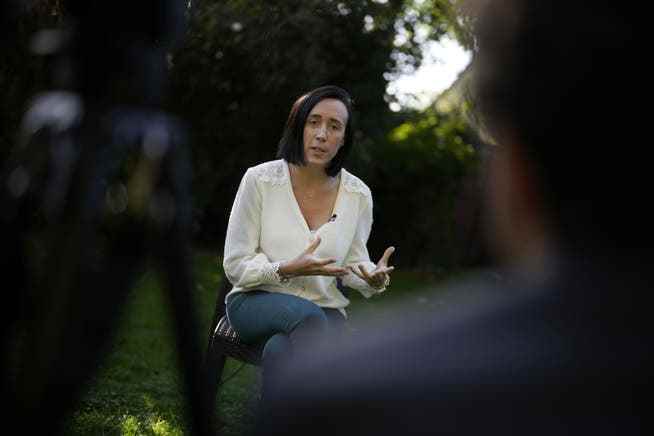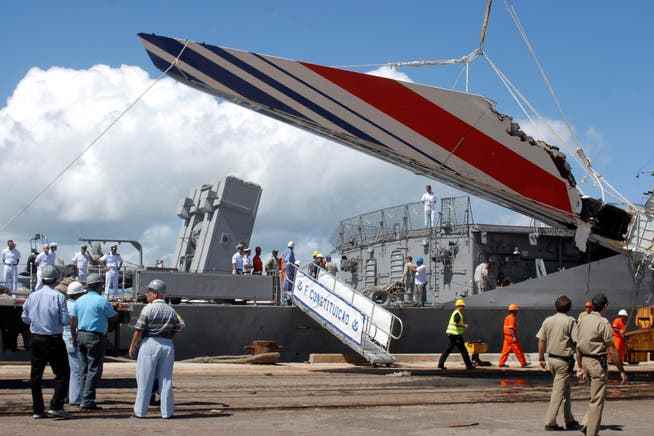The criminal trial of the 2009 Rio-Paris flight crash, in which 228 people died, has begun in Paris. Airbus and Air-France are accused of negligent homicide.
Lawyers and participants enter the courtroom at the Palais de Justice in Paris on the first day of the nine-week trial of flight AF 447 from Rio to Paris.
The airline Air France and the airline Airbus have been charged with “negligent manslaughter” before the Paris Criminal Court. The trial, which is scheduled to last until December 8, is about the June 1, 2009 tragedy. All 216 passengers and 12 crew members killed. With this number of victims, it was the worst disaster in French civil aviation history.
13 years later, the judiciary is to decide whether the two accused companies bear responsibility under criminal law. Very technical discussions are expected, experts from the prosecution will compete against other experts from the accused. The human drama of the catastrophe could slip into the background.
Pilots as scapegoats
476 relatives of the victims, the passengers from 33 countries and the French crew members are demanding accountability in court as joint plaintiffs. On five days of the hearing, they will also have the opportunity to express themselves and describe the personal loss they have suffered.
One of the relatives is Ophélie Toulliou, whose brother Nicolas died in the crash. Before the trial, she explained: “It is never too late to see justice done. If you’ve lost a brother or a child, you can never just go back to business as usual.” Above all, she expects that the “truth” will come out in the coming negotiations. Because for too long, she thinks, the pilots of the death flight had to serve as scapegoats in a somewhat careless way. “Right from the start, they tried to present the pilots as the culprits. You are no longer there to defend yourself.”

Ophélie Toulliou, the sister of a plane crash victim, during an interview with the AP news agency in Sannois, outside Paris
Around two years after the crash, the two flight recorders were recovered in the remains of the aircraft at a depth of 3900 meters in the middle of the Atlantic. In addition to the stored data, the investigators also had the recording of the last words of the pilots at their disposal. They could only state that the on-board instruments were going haywire and that the machine had become uncontrollable.
The accident experts later found out that the reason was a problem with the so-called pitot probes, which were supposed to measure the speed. A few hours after takeoff, these were frozen in a storm zone at an altitude of several thousand meters. They therefore no longer provided the necessary information. Apparently the pilots did not know how to react in this situation. In less than five minutes, the plane rapidly lost altitude without the crew and passengers probably being aware of this. Then the plane crashed into the sea.
Acquittal in first instance
After a ten-year investigation, a first court instance had initially dropped all allegations against Airbus and Air France, as allegedly there had been no valid suspicion of negligent behavior. After the public prosecutor’s office and the victims’ associations appealed, the second instance overturned this decision and brought charges. The Airbus consortium is accused of criminally underestimating the serious shortcomings of these probes, which the A330s were equipped with at the time, and failing to inform the airlines and crews. Air France is held responsible because the pilots were insufficiently prepared and trained for such crisis situations.

Debris from the missing Air France Flight 447, recovered from the Atlantic Ocean, arrives at the port of Recife June 14, 2009.
The problems with these pitot probes (which have since been replaced worldwide) were already known in the summer of 2009. According to available court records, in the 15 months prior to the Rio-Paris flight crash, there were no fewer than 16 threatening incidents reported by Air France pilots. In hindsight, the manufacturer and the airline still blame each other. As a legal entity, the two companies only face fines of up to 225,000 euros in the event of a guilty verdict. The loss of confidence and prestige would cost them far more if they were convicted.
